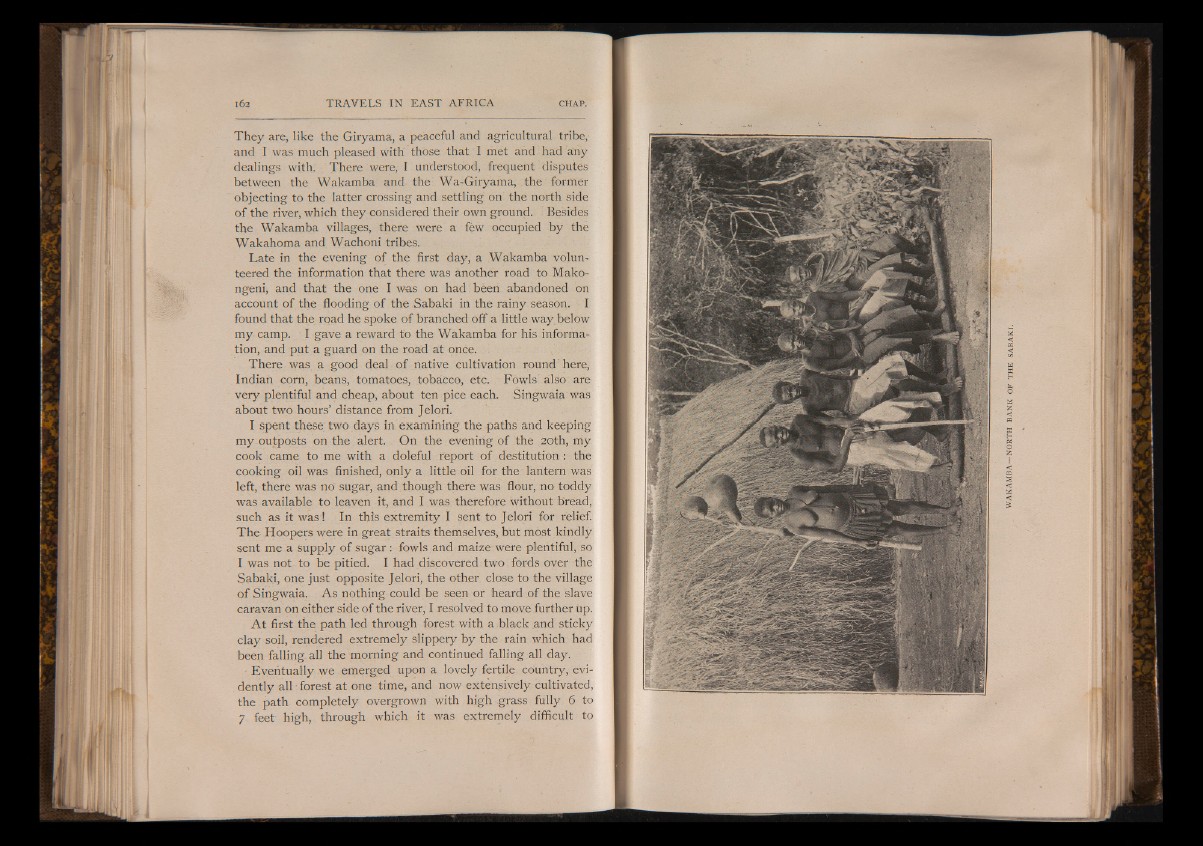
They are, like the Giryama, a peaceful and agricultural tribe,’
and I was much pleased with those that I met and had any
dealings with. There were, I understood, frequent disputes
between the Wakamba and the WaTGiryama, the former
objecting to the latter crossing and settling on the north side
of the river, which they considered their own ground. Besides
the Wakamba villages, there were a few occupied by the
Wakahoma and Wachoni tribes.
Late in the evening of the first day, a Wakamba volunteered
the information that there was another road to Mako-
ngeni, and that the one I was on had been abandoned on
account of the flooding of the Sabaki in the rainy season. I
found that the road he spoke of branched off a little way below
my camp. I gave a reward to the Wakamba for his information,
and put a guard on the road at once.
There was a good deal of native cultivation round here,
Indian corn, beans, tomatoes, tobacco, etc. Fowls'also are
very plentiful and cheap, about ten pice each. Singwaia: was
about two hours’ distance from Jelori.
I spent these two days in examining the paths and keeping
my outposts on the alert. On the evening of the 20th, my
cook came to me with a doleful report of destitution : the
cooking oil was finished, only a little oil for the lantern was
left, there was no' sugar, and though there was flour, no toddy
was available to leaven it, and I was therefore without bread,
such as it was! In this extremity I sent to Jelori for relief.
The Hoopers were in great straits themselves, but most kindly
sent me a supply of sugar : fowls and maize were plentiful, so
I was not to be pitied. I had discovered two fords over the
Sabaki, one just opposite Jelori, the other close to the village
of Singwaia. As nothing could be seen or heard of the slave
caravan on either side of the river, I resolved to move further up.
A t first the path led through forest with a black and sticky
clay soil, rendered extremely slippery by the rain which had
been falling all the morning and continued falling all day.
Eventually we emerged upon a lovely fertile country, evidently
all forest at one time, and now extensively cultivated,
the path completely overgrown with high grass fully 6 to
7 feet high, through which it was extremely difficult to